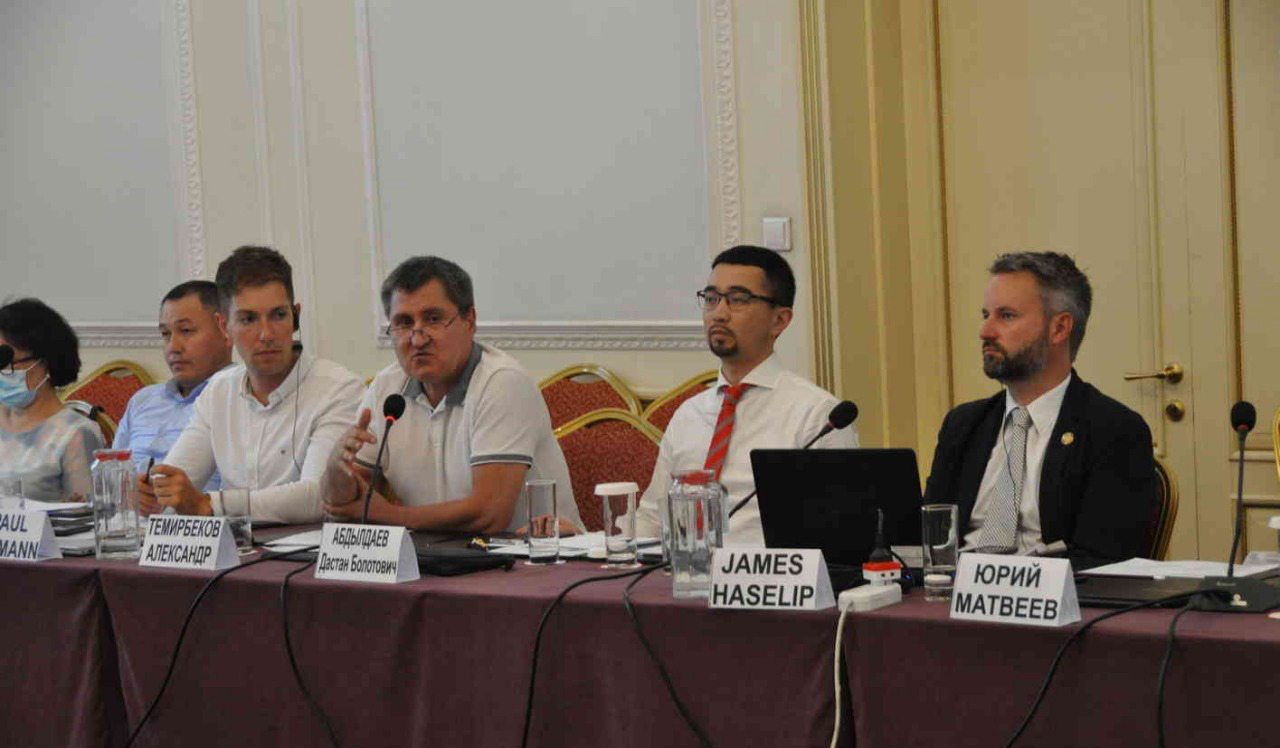A delegation from the Government of the Kyrgyz Republic visited the UNEP Copenhagen Climate Centre19-21 June, to get first-hand experience on the use of climate technologies, as prioritised in the country’s Technology Needs Assessment (TNA) funded by the Green Climate Fund.
The 3-day mission was opened by Mr. Rajiv Garg, acting director of the UN Climate Technology Centre and Network (CTCN) who oversee the project. Dr. Azamat Temirkulov, Deputy Minister of Environment for the Kyrgyz Republic, who joined online to endorse the delegation, underlined the importance of the TNA to the country’s national climate financing strategy to secure significant investment in clean and modern technologies.
The tour provided opportunities for the Kyrgyz delegation to establish relevant contacts in Denmark – both commercial and political – for technology-specific project development and investment opportunities. Some of these will be articulated in three Concept Notes for submission to the Green Climate Fund (GCF), planned as the final deliverables of the TNA project.
Focus on TNA technologies
With the sector and technology prioritizations of the Kyrgyz Republic as a starting point, the technical tour focused on understanding the history of development, and investments in water management technologies (e.g., smart metering for efficient irrigation, energy efficient pumps etc.); waste-to-energy; waste-water treatment facilities; as well as technologies relevant to the agricultural sectors.
The meetings and site-visits were designed to shed light on how these technologies were introduced in Denmark, the challenges that have been encountered by Danish actors and agencies and how they overcame them.
A three day tour of climate solutions…
The delegates visited the Amager Ressourcecenter (ARC), a modern waste-to-energy facility that turns the majority of Copenhagen’s non-recyclable household waste into electricity and heat for the city’s district heating system. During the tour the delegates learned how the technology provides multiple environmental benefits, compared to the reality of how solid waste is handled in most large cities.
On the second day of the technical tour, the participants visited industrial facilities in Aarhus and met with members of the water sector group of the Danish Industry trade association. During this Business Roundtable, the technical lead of the Kyrgyz Delegation gave a presentation on the challenges and opportunities for the country’s water sector, including national technology priorities and investment strategies. This led to an exchange of ideas about possible project collaborations and agreed follow-up actions.
This was followed by a visit to the Marselisborg Wastewater Treatment Plant where delegates learned about the various clean technologies and revenue streams of the facility including the on-site generation of electricity from methane capture. Afterwards, the participants were provided with a presentation by Food Nation to learn about sustainable agriculture practices in Denmark, and how climate technologies are being used to increase agricultural performance while reducing environmental impacts.
…and enabling policies
On the third day of the tour, delegates visited the Danish Parliament meeting officials at the Ministry of Environment where discussions focused on the overall enabling environment and political initiatives that were required to achieve the uptake of climate technologies for sustainable drinking water, wastewater and waste management. The mission ended with a presentation by State of Green who provided an overall historical framing for Denmark’s green transition and future climate targets.
The mission concluded with a discussion of the lessons learned during the tour as well as agreed next steps for potential commercial partnerships. One of the main takeaways from the various discussions in Denmark was the importance of state-driven environmental policies and regulation to create markets for clean technologies.





